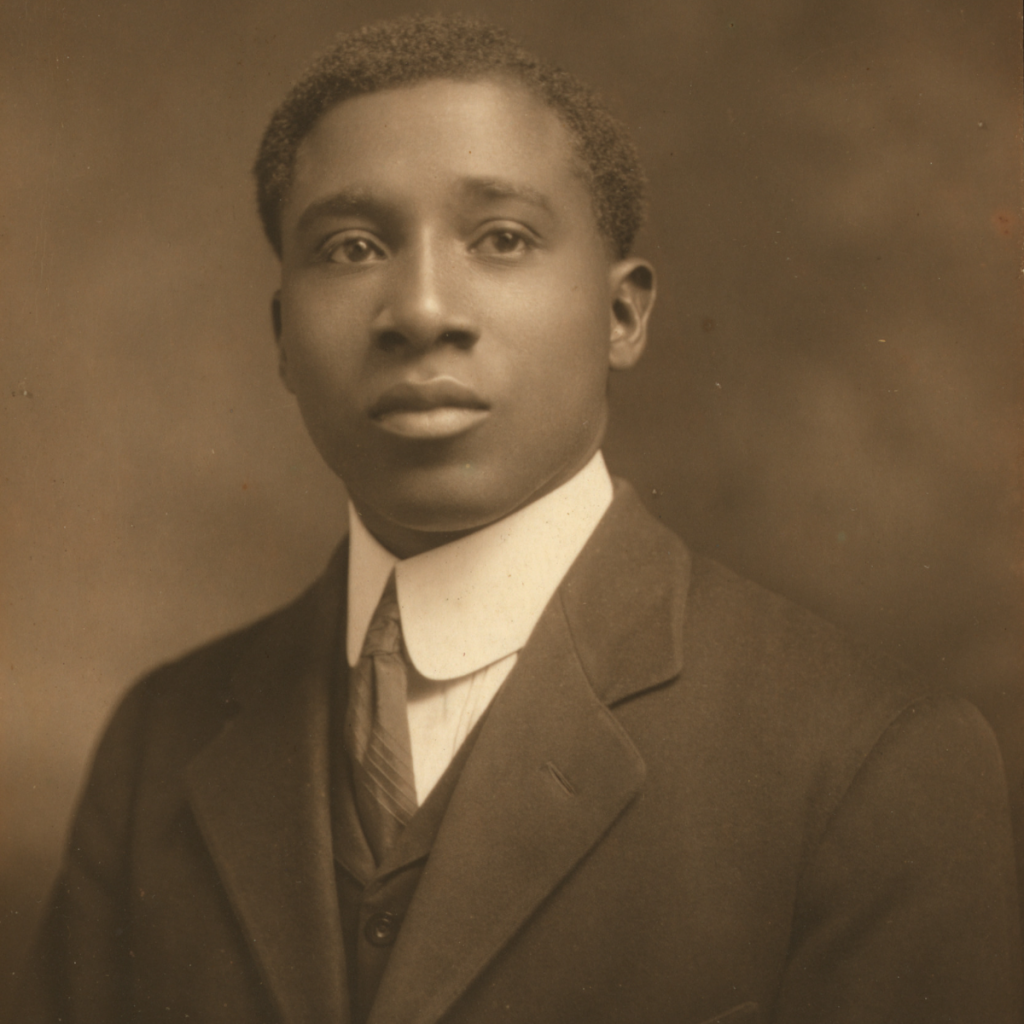by Jarrett Hoffman

•Announcements: Carlos Kalmar enters “leave of absence” from CIM
•Interesting reads: North Carolina radio station plans to withhold broadcasts of six contemporary operas from the Met because of objections to content
•Almanac: R. Nathaniel Dett (pictured) and The Ordering of Moses
HAPPENING TODAY:
Nothing on the schedule today, but check out our Concert Listings as you plan out your week.
ANNOUNCEMENTS:
According to a spokesperson from the Cleveland Institute of Music, principal conductor and director of the orchestral studies program Carlos Kalmar has “entered into a leave of absence” for the rest of the semester. As Kabir Bhatia wrote for Ideastream on Saturday, “The move comes two weeks after students staged a sit-in to protest Kalmar. Many students attended rehearsal without instruments, and others sat in the audience space in support.” Read here.
INTERESTING READS:
As Anastasia Tsioulcas writes for NPR, “A listener-supported radio station in North Carolina, WCPE, is planning to withhold the broadcast of six contemporary operas this season from New York’s Metropolitan Opera, because of the station management’s objections to the operas’ content. It is a classical music controversy that echoes larger, nationwide culture war debates.” Read here.
TODAY’S ALMANAC:
Composer, keyboardist, and choral director R. Nathaniel Dett, a champion of the use of African American folk songs and spirituals in composing for the concert stage, died of a heart attack in Battle Creek, Michigan on this date in 1943. He was on tour with a Women’s Army Corps chorus of the United Service Organization, having joined the USO as a choral advisor to support American troops during World War II.
Dett was also an alumnus of Oberlin Conservatory, a connection that was highlighted in January of this year when orchestral and choral forces from Oberlin traveled to Carnegie Hall’s Stern Auditorium for a program that was capped off by Dett’s The Ordering of Moses. The cast of soloists included a pair of alumni — Chabrelle Williams (soprano) and Limmie Pulliam (tenor) — as well as guests Ronnita Miller (mezzo-soprano) and Eric Greene (baritone). The conductor was Raphael Jiménez, and the choir was prepared by Gregory Ristow and Ben Johns. Read our review here.
Prior to the performance, Mike Telin wrote about Dett and that famous oratorio in an article excerpted below:
Nathaniel Dett was born in what is now Niagara Falls, Canada, in 1882. He graduated from the Oberlin Conservatory in 1908 — the first Black alumnus to graduate with a double major (piano and composition) and Phi Beta Kappa honors. He is also the first Oberlin College graduate to be awarded an Honorary Doctorate (1926). After studying at Columbia, Harvard, the University of Pennsylvania, the American Conservatory, and with Nadia Boulanger in France (1929), he graduated with a MMus degree from the Eastman School of Music in 1932.
As a composer he often found his inspiration in African American folk music. In 1918, Dett wrote of his compositional goals:
We have this wonderful store of folk music—the melodies of an enslaved people … But this store will be of no value unless we utilize it, unless we treat it in such manner that it can be presented in choral form, in lyric and operatic works, in concertos and suites and salon music — unless our musical architects take the rough timber of Negro themes and fashion from it music which will prove that we, too, have national feelings and characteristics, as have the European peoples whose forms we have zealously followed for so long.
The Ordering of Moses was composed in 1932 as part of Dett’s graduate study at Eastman. He revised and expanded the work in 1937, which received its premiere on May 7 that same year at the Cincinnati May Festival, when Eugene Goosens conducted the Cincinnati Symphony and a chorus of 350.
Dett recounts the biblical story of the Exodus and the journey from persecution to freedom, skillfully blending his classical training with Black folk songs and spirituals — something he learned to do at Oberlin and continued throughout his career.
After its premiere, the work lay dormant until 1956, when it was revived and recorded at that year’s May Festival, featuring soprano Leontyne Price and baritone William Warfield. The performance was broadcast live across the U.S. on NBC radio, but the network stopped the broadcast three-quarters of the way through, claiming a scheduling conflict. In an article for The Guardian, tenor Roderick Dickson reported that the announcer explained,
“We are sorry indeed, ladies and gentlemen, but due to previous commitments, we are unable to remain for the closing moments of this excellent performance.’ It has been suggested that these “previous commitments” were in fact a concession to objections voiced by callers to the network. The May Festival’s performance of The Ordering of Moses might well have been the first network broadcast of a major work by a Black composer.
Click here to listen to The Ordering of Moses in a recording from 1968 by the Talladega College Choir (under the direction of Frank Harrison), the Mobile Symphony Orchestra (led by William Levi Dawson), and soloists Jeanette Walters, soprano, Carol Brice, contralto, John Miles, tenor, and John Work, baritone. (Head to the 15:08 mark to hear Dett’s powerful setting of Go Down, Moses.)
And click here to watch a panel discussion titled Cultural Context in Dett’s “The Ordering of Moses” presented in January at Kaufman Music Center’s Merkin Hall in conjunction with Oberlin’s Carnegie concert. Moderated by Courtney-Savali Andrews, assistant professor of African American and African diasporic musics at Oberlin, the discussion brought together prominent scholars and performers from the fields of African American music, choral music, ethnomusicology, music theory, and religion to explore Dett’s music, life, and ideas.



